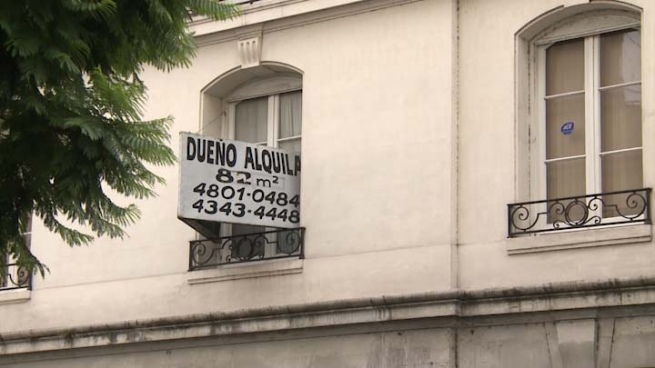The General Legislation Commissionl of the Chamber of Deputies concluded this Wednesday the round of consultations on the reform of the rent law with the exhibition of about forty exhibitors, and the deputies will begin to analyze possible modifications to that rule next week, after listening to the positions expressed by the representatives of the tenants and real estate brokers.
Throughout the rounds of consultations that were conducted by Cecilia Moreau, the vice president Carla Carrizo Y karina banfi (JXC), the differences were notorious between the tenant defense entities that expressed a resounding rejection to make any changes, and the real estate companies that asked to modify the law to reduce the contracts from 3 to 2 years and that the update be carried out every six months. instead of annual as it is today.
In this context, the deputies will have to define whether they continue to seek consensus between the parties of the real estate market or they begin to debate the reforms that will promote the rental law.
“I think we can start next week with the debate on the opinion,” Moreau anticipated at the start of the meeting.
» Another informative day in @DiputadosARwe listen to all the voices involved in the #RentalLaw. ? pic.twitter.com/nffEv0o8uD
— Cecilia Moreau (@ceciliamoreauok) April 20, 2022
One of the exponents who this Wednesday expressed his resounding rejection of reforming the law was the head of the National Federation of Tenants, Gervasio Munozcomplained that the legislators now want to reform the law approved two years ago due to “the pressure of the real estate companies” and wondered “in whose hands we are.”
Munoz noted that “it is worrying that such a short plan has been set to analyze a reform that involves 9 million tenants” and argued that the Tenants Federation “does not want to change the law or modify the three-year contract or the annual update.”
“We sincerely hope that they understand that we want to rent fairlyWe cannot depend on intermediaries and that is why we expect the role of the State since we know that we are facing unequal power,” he added.
From the Chamber of Owners of the Argentine Republic, Enrique Abati, He asked to reform seven articles of the law passed two years ago because “it has failed” since when the State intervenes it “ends up turning against the tenants.”
Today, last briefing at the Leg Commission. General for the #RentalLaw ; more than 100 exhibitors in the Congress. Last Tuesday there were 43, yesterday 30 and today 39. Quantity and amplitude; tenants, landlords, consumer advocates and real estate developers(1/2) pic.twitter.com/4fUwymtscB
– Carla Carrizo (@CarlaCarrizoAR) April 20, 2022
He also spoke in favor of “fundamentally motorize the construction industrywhich is the mother of all industries”.
While, Lucia Cavalleroa member of Ni Una Menos, maintained that “there is an unequal power relationship” when considering that “the starting point cannot be to think that there is a common interest: we find ourselves in a case where tenants come to us to comment on a blackmail situation” and warned that “the rental price has become a source of indebtedness “.
In turn, the representative of Unidos por la Profession, Federico Lopez Castromil noted that “this is a historic opportunitythe entire country is watching closely, Argentine men and women are waiting for a comprehensive solution to improve the reality of their rental contracts”.
On the other hand, the representative of the Campaign for the emergency in violence against women, mercedes meierpointed out that “the Rent Law cannot be blamed for the excessive increases, since here there are concentrated groups that believe they own everything that impose those conditions; and national legislators will have to define who they defend.”
While, Cecilia Pereiraof Inquilinos por Quilmes, defended the law enacted two years ago and pointed out: “They have no idea what it means to rethink every two years where we will end up, if we collect the amount of money they ask us to renew a contract or look for another housing, which is complicated for workers”.
During the meeting they also presented Maria Florence Aguero Biroccopresident of the Federal Consumer Council (Cofedec); Ana Rebekah Ancina, of the Union of Workers Tenants of Chubut CTA Autonomous; Y Cintia Barenboimresearcher at Conicet and professor at UNR and UAI.
They also did, among others, Andrea Bernal, Coordinator of public interest lawyers; Alejandro Bustamante, president of the Chamber of Owners of Jujuy; Jorge Cialiciotti, from the Blas Pascal University Academic Council – Director of the Argentine Real Estate Business School; and Emmanuel Canelli, from the Rosario Tenants Association.
The Front of All and Together for Change agreed in the first days of April to analyze for 30 working days the reforms that must be made to the Law sanctioned in 2020 due to the reduction of an offer to rent, in order to approve a new initiative in the first fortnight of May.
The Rental Law was approved by the Chamber of Deputies in November 2019 and signed into law by the Senate on June 11, 2020, in the first period of isolation due to the coronavirus pandemic.
But, less than two years after its sanction and a year after its implementation, the rule created numerous difficulties for tenants to rent a property, and the most objected issues are the terms of the contracts that were extended to a minimum of three years.








